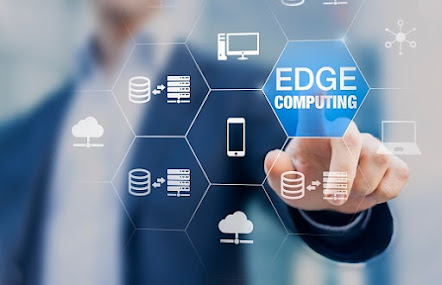Featured
- Get link
- X
- Other Apps
What is multimedia sharing
Legal uses of digital production
All information hosted on the Internet is copyrighted . When
we want to use material created by other people, be it a video or an image to
spread on a social network, a presentation, an audio or any other type of
material, we must take into account its authorship.
This means that we cannot make use of these elements without
contacting the author to request his permission and without citing the author
and the source from which we obtained them.
In this sense, we must also take into account the
infringements of intellectual property that we can commit when downloading files
from certain websites.

On the other hand, more and more frequently with some
authors subscribe to their works licenses creative common s , since such
licenses offer some rights to third parties under certain conditions, ie allow
the author of a work share their creation with others at different levels
chosen by him.
There are several types of imaginative commons licenses ,
where different elements are combined:
1. The first
is the recognition that obliges to grant authorship in any use made of the
work.
2. The
second element would be non-commercial, which determines that it cannot be used
for profit.
3. Third,
the "no derivative works" condition establishes that in this case it
is not allowed to transform the original work to create a derivative work.
4. And
finally, the “share alike” license allows the creation of derivative works as
long as they maintain the same license when disclosed.
Image and audio: image management and online services
We can differentiate between:
1. Video:
1. YouTube
is a website where users can upload and share videos. It is very popular thanks
to the ability to easily host personal videos. In addition, it hosts a wide
variety of movie clips, TV shows, and music videos. The possibility of sharing
videos publicly or privately, together with the new features that have been
added, such as video editing to create montages, modify colors or add audio,
has also allowed it to be used as a tool to broadcast commercial videos of many
companies, since, being owned by Google, it indexes YouTube videos in its
results through the search engine. YouTube has also generated a new phenomenon,
that of videoblog, with which many individual users make their videos
profitable through the advertising that YouTube allows to insert in their
videos. It is important to know the copyright of YouTube, as it has been
modified over time and now the definition of copyright in videos is different
from the one that applied when it was born in 2005, which only applied to
videos uploaded with music. These are mostly copyrighted , although the company
only acts to remove them if the owner of such rights requests it. If this rule
is violated at least three times, and after warnings, the user's account can be
canceled.
Reverse video (or invert video before inverse video or reverse display) is a computer display method whereby the history & textual content color values are inverted. On older computer systems, shows have been normally designed to display text on a black history by default.
2. Vimeo is
another website that offers a service to create a video channel on the
Internet. The main difference with YouTube is that Vimeo does not allow
advertising or the insertion of audiovisual material from television or cinema,
but requires that it be its own material. It also places special emphasis on creative
videos, since it aims to promote audiovisual creation, hence its appearance and
characteristics are of HD quality. It also serves to promote your work as an
audiovisual artist and allows, like YouTube, comments or votes. Vimeo also has
different Premium versions, which expand storage capacities, access to
statistics or better resolution.
2. Audio :
1. iVoox is
an online platform where you can play, download and share audios of all kinds,
not just podcasts, they can also be radio programs, audiobooks, conferences,
etc. One of the characteristics of iVoox, which differentiates it from other
platforms of this type, is that it is not necessary to subscribe to a certain
program or podcast: you can subscribe to a specific topic and have access to
all related audios, with which the factor "Discovery" comes out very
reinforced. Both uploading audios to the platform and playing them, downloading
them or subscribing to a theme or podcast is free. At the moment, therefore,
the authors of the podcasts do not receive any type of remuneration either.
- Get link
- X
- Other Apps
Popular Posts
Beauty and Technology of Digital Landscape
- Get link
- X
- Other Apps
EDGE-CLOUD: The 5G Pathway to Serviced Operating Technology
- Get link
- X
- Other Apps
.jpg)
